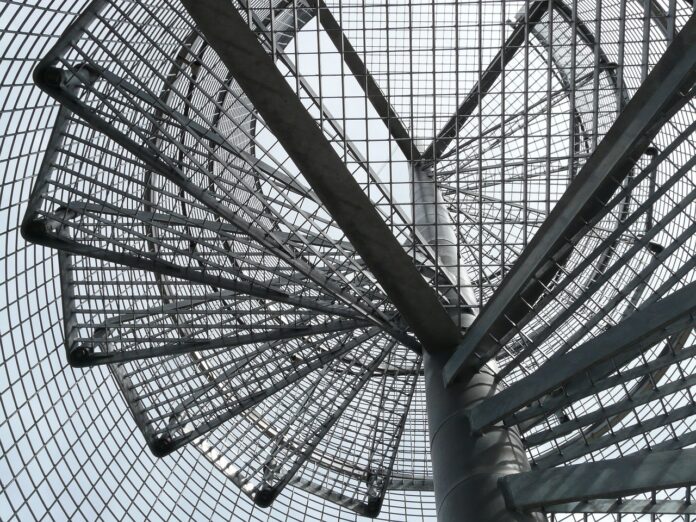Selecting the right materials for stairs is crucial not only for functionality but also for safety, durability, and aesthetics. Steel stairs have emerged as a popular option due to their numerous advantages over materials like wood or concrete. From their strength and versatility to their sleek appearance and ease of installation, steel stairs offer a wide range of benefits, making them an ideal choice for various applications. This article explores the advantages of steel stairs for commercial and industrial spaces and why they are preferred by architects, engineers, and building owners alike.
Customization Options
Steel stairs offer a high degree of customization, allowing architects and designers to create stairs that meet each project’s specific requirements and aesthetic preferences. It can be easily fabricated into various shapes, sizes, and designs, making it suitable for standard and unique stair configurations. Whether it’s a straight staircase, spiral staircase, winding staircase, or modular steel stairs, steel can be tailored to fit the space and complement the overall design scheme of the building. Additionally, steel stairs can be finished with various coatings, such as powder coating or paint, to enhance their appearance and durability.
Steel stairs are relatively quick and easy to install compared to other materials, making them an ideal choice for fast-paced construction projects with tight deadlines. Steel stair components can be prefabricated off-site to precise specifications and then assembled on-site, minimizing disruption to ongoing operations and reducing construction time. This accelerated construction process can help expedite project timelines and ensure stair installations are completed on schedule, allowing commercial and industrial spaces to be operational sooner.
Versatility
Being highly versatile, steel stairs can be used in various commercial and industrial applications. They are suitable for virtually any environment, from office buildings and retail spaces up to warehouses, factories, and manufacturing facilities. They can be installed both indoors or outdoors, in cramped spaces or expansive areas, and accommodate various architectural styles and design preferences. Whether providing access to mezzanine levels, rooftop decks, or machinery platforms, steel stairs offer flexibility and adaptability to meet the needs of diverse projects.
Strength and Durability
One of the primary advantages of steel stairs is their exceptional strength and durability. Steel is inherently more robust than other materials commonly used for stairs, such as wood or concrete, making it capable of supporting heavy loads and withstanding frequent use in high-traffic areas. This strength and durability make steel stairs ideal for commercial and industrial settings where safety and longevity are paramount. Whether it’s a staircase in a manufacturing facility, warehouse, or office building, steel stairs can withstand the rigors of daily use, while maintaining their structural integrity for years.
Fire Resistance
Steel is inherently fire-resistant, making it an excellent choice for stairs in commercial and industrial spaces where fire safety is a top priority. Unlike wood, which is combustible and can contribute to the spread of fire, steel does not burn when exposed to high temperatures. This fire resistance gives occupants valuable time to evacuate the building in the event of a fire and helps prevent the spread of flames to other areas of the structure. As a result, steel stairs provide an added layer of safety and peace of mind for building owners, tenants, and occupants.
Low Maintenance
Another significant advantage of steel stairs is their low maintenance requirements compared to other materials. Steel is inherently resistant to corrosion, and rot reducing the need for frequent repairs. Unlike wood stairs, which may warp, crack, or splinter over time, steel stairs remain structurally sound and visually appealing with minimal upkeep. Routine cleaning and occasional inspections are typically all needed to keep steel stairs in optimal condition, saving time and money on maintenance costs in the long run.
Sustainability
Steel is a highly sustainable building material with a low environmental impact, making it an eco-friendly choice for commercial and industrial construction projects. Steel is widely recycled, with a high percentage of recycled content used in producing new steel products. Also, steel stairs can be disassembled and recycled at the end of their service life, reducing their environmental footprint. Building owners can contribute to sustainable building practices by choosing steel stairs and demonstrating their commitment to environmental stewardship.
Steel stairs offer many advantages for commercial and industrial spaces, ranging from strength and durability to fire resistance, customization options, and low maintenance requirements. Their versatility, quick installation, and sustainability make them attractive for architects, engineers, and building owners seeking safe, reliable, and aesthetically pleasing stair solutions. Whether providing access between floors, enhancing the architectural design of a building, or meeting stringent fire safety requirements, steel stairs meet the diverse needs of modern commercial and industrial environments. As such, they remain a preferred choice for stair construction in various applications.























